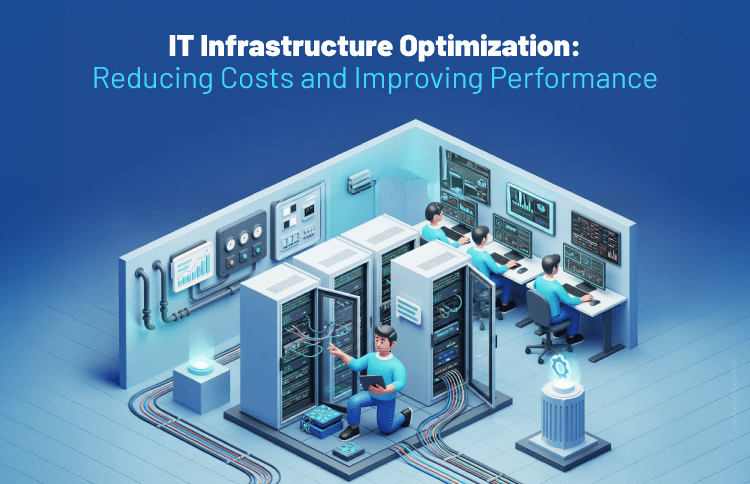How Can IT Startups Get More Done With Offshore Development Centers?
Table of Contents
When we mention IT startups, people usually think about highly-technical men and women based in Silicon Valley who work 12-16 hours per day to get their app idea off the ground and scale up quickly. Usually, this kind of work is highly stressful, and these kinds of startups experience high attrition rates, especially in their developers.
But this way of doing things isn’t the only way. There’s another model. It can replace your long 12-16 hour days, or it can supplement them, so you get more work done in the same timeframe. Lots of startups are using it because it can be the smartest way to reduce your costs, development time, and other resources spent on a given project. (This goes double if your particular IT startup is limited by infrastructure and funding).
So what am I talking about? I’m talking about the Offshore Development Model, of course. It’s no secret that we at Capital Numbers think this model is the solution to many problems IT startups face — limited time, limited resources, high turnover, etc. The only reason lots of startups don’t consider it to be their first option because they aren’t aware of the advantages.
IT startups have a lot to gain from using an offshore development center. From technical expertise and solutions to faster project development, cost savings, or use of proprietary tools, many offshore development centers offer something to every startup. Offshore developers can do the work of an in-house team, or supplement them so you get more work done, or work on separate projects that you wouldn’t have the in-house skills to do otherwise.
It’s important to note that your offshore developer doesn’t have to be your ONLY developer. Sometimes, for certain projects, you might want that to be the case. Other times, they will simply act as an auxiliary developer to support your team. This very flexibility is what can make them so valuable.
Furthermore, the benefits aren’t limited to development services. You also get access to expertise and talent that might be cost-prohibitive to acquire otherwise.
What else can remote development firms offer?
Cost Savings
It’s no secret that in the United States and most of Western Europe, software development costs are expensive. For example, a good full-stack developer might command a wage of $85,000 or more.
But when you work with a remote development center, you can get a team of several specialized developers for less. You might be skeptical and think that remote developers might not be as good as in-house developers, but that’s not the case. They command lower prices because the economics are in your favor — they offer the same talent and skillsets as American developers who enjoy bloated wages due to demand in environments similar to Silicon Valley. So you can get the same kind of service for less.
Furthermore, you can often ask an hourly rate or some other pricing model that saves you money in the long run. Remember, you don’t have to pay for vacation days, insurance, working space, or extra taxes when you’re working with a development partner. All that is already taken care of. You just have to give instructions and pay only for work completed.
Scalability
While we’re talking about cost savings, we have to also talk about scalability.
Hiring in-house is not a very scalable enterprise. Consider the average hiring process. It’s time-consuming, usually with several rounds of interviews and a rigorous selection process. You need to invest in training and onboarding. Not to mention all the other expenses we already talked about, like employee insurance. When you hit a downturn (for example, seasonal businesses), you may have to let employees go… and when it gets busy, you might rush to hire new ones. These processes take time… and usually, money.
Contrast that with the average experience with hiring offshore developers. This is a scalable process by design. That’s because remote development companies do everything for you, including interviews, vetting, and hiring. You can pay them hourly—or by whatever payment model you prefer—and then when the project is completed, you can scale down. No layoffs, no hassle, no fuss! Then, when you’re ready to scale up, you can just hire again… whether hiring individuals or a whole team.
Ongoing Support
A good development partner will offer support during all stages of the project— beginning, middle, and end.
Similar to working with an in-house team, you can expect several in-depth meetings beforehand where you hammer out expectations and project milestones. If you aren’t an experienced outsourcer, they’ll take you step by step through the process. If you are an experienced outsourcer, they will attentively listen to your requirements and let you know what you should expect in terms of milestones.
During the middle, you can request daily touchpoints for project management. This can make working with a remote development company as easy as working with the office next door. It might require nothing more than a daily email with a couple of lines… or it might require more robust meetings. In either case, regular check-ins will help mimic the accountability of working with an in house team, with whom you meet every day.
Finally, many outsourcing firms will stick around for maintenance development. Or, you can opt to do app management and maintenance yourself. It’s up to you.
And finally…
Tools and Infrastructure
Remote development firms are already established in terms of their tools and infrastructure. For example, at Capital Numbers, we have made significant investments in our infrastructure. We enjoy high-speed internet, multiple levels of digital and physical security, and specially-designed workspaces meant to offer developers and project managers the most creative and efficient environment possible.
Furthermore, we have project management and development tools that are available to all our clients — even though they might be cost-prohibitive for our clients to buy for themselves.
You can expect any good offshore development center to do the same.
Conclusion
We firmly urge IT development startups to consider working with an offshore development center. Not only will it help you stay on time and budget, but this model will help you avoid the inconveniences of scaling an in-house team up and down…especially on a shoestring budget. You will enjoy greater scalability, more flexibility, cost savings, and even access to better tools and infrastructure than you might enjoy otherwise.















